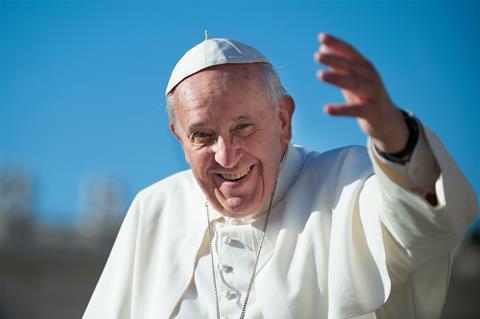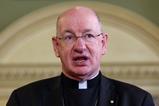LGBT Catholics have welcomed a new statement from Pope Francis, which has been interpreted as opening the door to blessing same-sex relationships

Something significant is happening in the life of the Roman Catholic Church as a group of cardinals restate and reissue several dubia.
What’s a dubia?
It’s Latin for ‘doubts’. If a Pope says or does something that casts doubt on a point of doctrine, the Roman Catholic Church places a duty on concerned bishops to raise questions. These questions are referred to as ‘dubia’, and it’s rare for them to be issued.
What are the cardinals concerned about?
Five cardinals are questioning ambiguous statements which have been made by Pope Francis in relation to the church’s doctrine in recent times. The cardinals are concerned the Pope could be opening the door to women’s ordination and the blessing of same sex unions.
I thought the Catholic Church was against gay marriage and women priests. Why would they worry the Pope would ever change the Church’s teaching?
The Roman Catholic Church officially teaches that people who experience same-sex attraction should be accepted with respect, compassion, sensitivity and with no discrimination. It also declares sexual activity between people of the same sex to be intrinsically disordered, a grave sin and under no circumstances can it be approved.
But when asked to clarify his position on this teaching, Pope Francis said, “If someone is gay and he searches for the Lord and has goodwill, who am I to judge?” This remark, and others like them, have been viewed as unhelpfully ambiguous by conservative Catholics.
How has the Pope responded?
The dubia questions were submitted on July 10, and the Pope responded privately the next day. However, because Pope Francis did not respond in the traditional “yes” or “no” formula, the cardinals re-worded the dubia and re-submitted it again on 21 August. The Pope hasn’t responded to this second attempt at gaining answers, but his first responses were made public on Monday.
It seems the Pontiff upheld the Church’s ban on women priests, but appeared to express openness to blessing same-sex couples provided doing so was not confused with the sacrament of marriage.
He wrote, “pastoral charity should permeate all our decisions and attitudes” adding that “we cannot be judges who only deny, reject and exclude”.
“Pastoral prudence must adequately discern whether there are forms of benediction, requested by one or more persons, that do not transmit a mistaken conception of marriage,” he wrote. “Because when a benediction is requested, it is expressing a request for help from God, a plea to be able to live better, a trust in a father who can help us to live better.”
In responding to concerns about the Church embracing the norms of modern society at the expense of its historic position, Pope Francis affirmed that “divine revelation is immutable and always binding,” but added, “the Church must be humble and recognize that she never exhausts its unfathomable richness and needs to grow in her understanding. Cultural changes and the new challenges of history do not modify the revelation, but they can stimulate us to make more explicit some aspects of its overflowing richness, which always offers more. It is inevitable that this may lead to a better expression of some past statements and indeed it has happened throughout history.”
The Pope’s remarks suggest there won’t be a blanket rule allowing the blessing of same-sex couples, but rather this could be considered in limited and specific cases.
Why are bishops allowed to question the Pope in this way?
According to Roman Catholic understanding, the authority to determine, interpret and apply doctrine goes back to Jesus’ words in Matthew 16 and 18. Jesus first addresses Peter alone and confers on him the authority to “bind and loose” and also to definitively “open and shut”. Subsequently he confers the same authority on the other apostles as a group rather than giving any one of them the right to act alone. At the time of Jesus, binding and loosing is what the High Priest did when asked to make an authoritative interpretation of the law.
We see this same dynamic between Peter and the other apostles (who hold the office of bishop according to Acts 1:20) played out in the First Council of Jerusalem described in Acts 15. Encountering a pastoral issue that Jesus had never taught on, Peter and the other apostles met, debated, prayed and made a decision under the inspiration of the Holy Spirit. They then sent a declaration to all the other churches which made this decision binding on all the faithful. Catholics view the Pope as first amongst equals, and this understanding has governed all the ecumenical councils since this first gathering in Jerusalem.
Why the confusion? I thought the Catholic church had one clear position on ethical issues?
Within modern Catholicism there are the same wings of conservative and liberal thinkers that exist in other denominations. While the official doctrine and teaching of the Roman Catholic remains unambiguous and conservative, there is a significant group of more liberal thinkers who would like to make changes in line with recent developments in sexual ethics. Pope Francis, in making unguarded statements questioning our right to sit in judgement on same-sex relationships, has agitated the conservative wing of the Church.





































1 Reader's comment